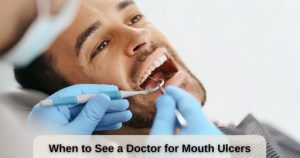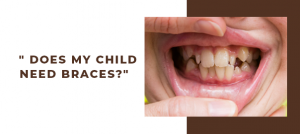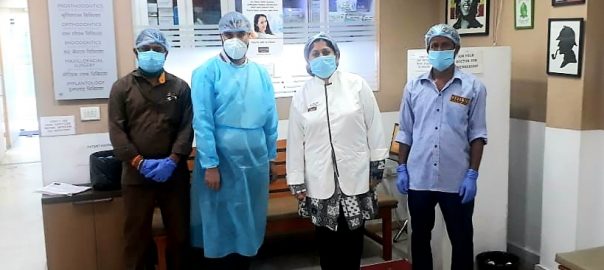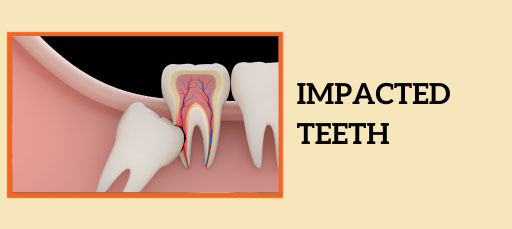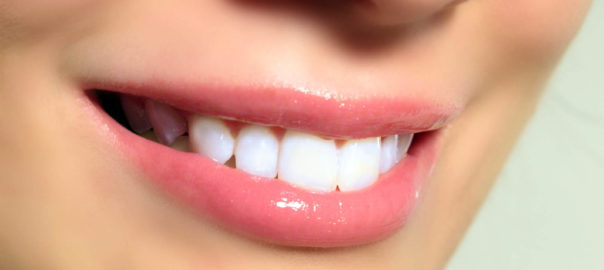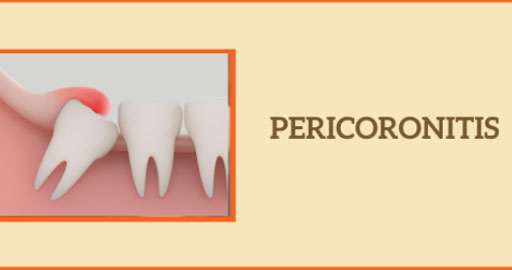
Pericoronitis – Symptoms, Causes, Treatment
Pericoronitis is a painful condition that affects many people, typically in their late teens to early twenties. It occurs when the wisdom teeth, also known as third molars, erupt and become partially or fully impacted, leading to an infection around the tooth’s gum tissue. This blog will discuss the symptoms, causes, and effective treatments for pericoronitis.
Symptoms of Pericoronitis
A dental abscess is a localized collection of pus within the teeth, gums, or the bone supporting the teeth. This condition occurs due to a bacterial infection, typically from dental cavities, gum disease, or a cracked tooth. The infection may lead to the accumulation of pus, causing swelling, severe pain, and other uncomfortable symptoms.
- 1. Pain and Discomfort: One of the most common symptoms of pericoronitis is pain and discomfort in the back of the mouth, often localized around the impacted wisdom tooth. This pain can range from mild to severe and may be continuous or intermittent.
- 2. Swelling and Inflammation: Swelling and redness around the affected area are typical signs of pericoronitis. The inflammation may extend to the cheek and throat, making it difficult to open your mouth entirely.
- 3. Bad Breath and Unpleasant Taste: An unpleasant taste and bad breath are often associated with pericoronitis. The infection can cause an accumulation of pus, leading to a foul odor and taste.
- 4. Difficulty Chewing and Swallowing: Due to the pain and swelling, chewing and swallowing may become challenging, making eating uncomfortable.
Causes of Pericoronitis
- 1. Impacted Wisdom Teeth: Pericoronitis is primarily caused by the eruption of wisdom teeth, which often don’t have enough space to emerge correctly. These partially erupted teeth create a flap of gum tissue that can trap food particles and bacteria, leading to infection.
- 2. Poor Oral Hygiene: Inadequate oral hygiene practices, such as improper brushing and flossing, can contribute to the buildup of food particles and bacteria around the wisdom teeth, increasing the risk of pericoronitis.
- 3. Trauma: Trauma or injury to the area around the wisdom teeth can also increase the likelihood of infection. This can result from accidental biting, sharp food particles, or aggressive dental procedures.
Risk Factors of Pericoronitis
Pericoronitis is an inflammation of the gum tissue surrounding a partially erupted tooth, most commonly the third molars, also known as wisdom teeth. Several risk factors can contribute to the development of pericoronitis:
- 1. Poor Oral Hygiene: Inadequate brushing and flossing can accumulate food particles and bacteria around the partially erupted tooth, increasing the risk of infection.
- 2. Impacted Wisdom Teeth: When wisdom teeth don’t fully emerge through the gums, they create a pocket where food and bacteria can become trapped, leading to inflammation and infection.
- 3. Crowded Teeth: Crowding in the mouth can make it difficult for wisdom teeth to emerge properly, increasing the likelihood of pericoronitis.
- 4. Trauma: Trauma to the area, such as accidental biting or injury during chewing, can cause irritation and inflammation of the gum tissue around partially erupted teeth.
- 5. Age: Pericoronitis is more common in young adults and teenagers, as wisdom teeth typically begin to erupt during this time.
- 6. Genetics: Genetics may play a role in the development of pericoronitis. Some individuals may be more predisposed to having impacted or poorly positioned wisdom teeth, increasing their risk.
- 7. Immunocompromised Conditions: People with weakened immune systems, such as those with HIV/AIDS or undergoing chemotherapy, may be at higher risk of developing infections like pericoronitis.
- 8. Smoking: Tobacco use, mainly smoking, can impair the body’s ability to fight infections and may increase the risk of pericoronitis.
- 9. Inadequate Nutrition: A diet lacking essential nutrients can weaken the immune system and make individuals more susceptible to infections like pericoronitis.
- 10. Stress: Chronic stress can weaken the immune system, making individuals more vulnerable to infections and inflammation in the mouth.
Treatment of Pericoronitis
- 1. Pain Management: Over-the-counter pain relievers like ibuprofen can help manage pain and reduce inflammation. Your dentist or oral surgeon may prescribe more vital pain medication during oral surgery if necessary.
- 2. Warm Saltwater Rinse: Gargling with warm salt water can relieve inflammation by cleansing the affected area.
- 3. Antibiotics: If the infection is severe, your healthcare provider may prescribe antibiotics to combat the bacteria causing pericoronitis.
- 4. Irrigation: A dentist may clean the affected area using a syringe to remove debris and infected material from the gum flap.
- 5. Wisdom Tooth Removal: In many cases, the most effective treatment is to remove the problematic wisdom tooth. This prevents future episodes of pericoronitis and reduces the risk of complications.
How to prevent Pericoronitis at home?
While home care can help manage the symptoms, consulting with a dentist for proper diagnosis and treatment is essential. Here are some tips to help prevent pericoronitis at home
- 1. Maintain Good Oral Hygiene: Regular brushing and flossing are crucial for keeping the area around your wisdom teeth clean. Use a soft-bristled toothbrush and fluoride toothpaste to clean around the affected area gently.
- 2. Saltwater Rinse: Rinse your mouth with warm salt water several times daily. This can help reduce inflammation and kill bacteria in the affected area. Mix about half a teaspoon of salt into a glass of warm water and swish it in your mouth for about 30 seconds before spitting it out.
- 3. Avoid Irritation: Try to avoid further irritation to the affected area. Avoid chewing on the side of your mouth where you’re experiencing symptoms. Also, avoid sharp or hard foods that could aggravate the condition.
- 4. Over-the-counter Pain Relief: Over-the-counter pain relievers like ibuprofen or acetaminophen can help alleviate pain and reduce inflammation. Follow the recommended dosage instructions on the packaging.
- 5. Warm Compress: Applying a warm compress to the affected area can help reduce pain and swelling. Soak a clean cloth in warm water, wring out the excess, and gently apply it to the outside of your cheek near the affected tooth for about 15-20 minutes.
- 6. Hydrogen Peroxide Rinse: Dilute hydrogen peroxide with water (about equal parts) and use it as a mouthwash to help kill bacteria. Be careful not to swallow any of the solution.
- 7. Stay Hydrated: Drinking plenty of water can help flush out bacteria and debris from your mouth, promoting oral health.
- 8. See a Dentist: If you suspect you have pericoronitis or are experiencing symptoms such as pain, swelling, or difficulty opening your mouth, it’s essential to see a dentist as soon as possible for proper diagnosis and treatment. They may recommend antibiotics, dental cleaning, or extraction of the affected tooth if necessary. You can BOOK AN APPOINTMENT with a clove expert.
Prevention of Pericoronitis
Treatment for a dental abscess typically involves the following:
- 1. Maintain Good Oral Hygiene: Regularly brush and floss your teeth, including the area around your wisdom teeth, to prevent debris and bacteria buildup.
- 2. Dental Checkups: Visit your dentist regularly for checkups and X-rays to monitor the development and position of your wisdom teeth.
- 3. Early Intervention: If your dentist identifies issues with your wisdom teeth, consider doing the wisdom teeth removal process to protect against pericoronitis or other complications.
Conclusion
Pericoronitis can be painful and uncomfortable, but you can manage and prevent it with proper care and timely intervention. If you experience symptoms of pericoronitis, consult emergency dentistry or your dentist and oral surgeon for a thorough evaluation and appropriate treatment options.
Remember, maintaining good oral hygiene is critical to preventing this condition in the first place.
Frequently Asked Questions about Pericoronitis
1. What is pericoronitis?
Pericoronitis is inflammation of the soft tissues surrounding a partially erupted tooth, commonly seen with wisdom teeth, caused by bacterial accumulation.
2. What are the symptoms of pericoronitis?
Symptoms include pain, swelling, redness, difficulty opening the mouth, bad taste or odor, and, in severe cases, fever and swollen lymph nodes.
3. How is pericoronitis diagnosed?
Diagnosis involves a dental examination to assess the affected area, examine tooth position, and sometimes dental X-rays to evaluate the infection extent.
4. What are the treatment options for pericoronitis?
Treatment may include gentle cleaning, antibiotics, pain management, and, in severe cases, surgical removal of the partially erupted tooth.
How can pericoronitis be prevented?
Prevention involves:
- 1. Maintaining good oral hygiene
- 2. Regular brushing and flossing
- 3. Seeking dental care if experiencing symptoms or issues with wisdom teeth
Leave a Reply
Leave a Reply








